In October 2017, the day after I found out my dad had died from an accidental drug overdose, I picked up my camera and loaded it with a roll of film. Photography is how I make a living and it’s also how I process my experience of the world.
In the immediate days after my dad died, I often felt the weight of dissonant, opposing emotions. Our relationship was complex and thus created polarizing memories that can bring a smile to my face or overwhelm me with sadness. Creating double exposures was a way for me to express the contradicting and fraught emotions I was experiencing.
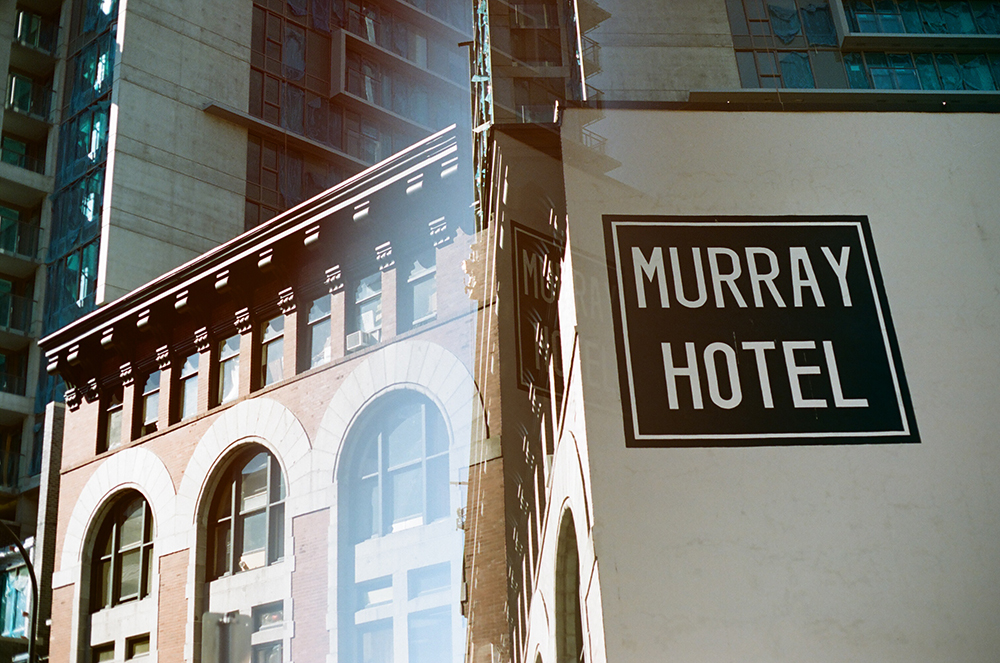
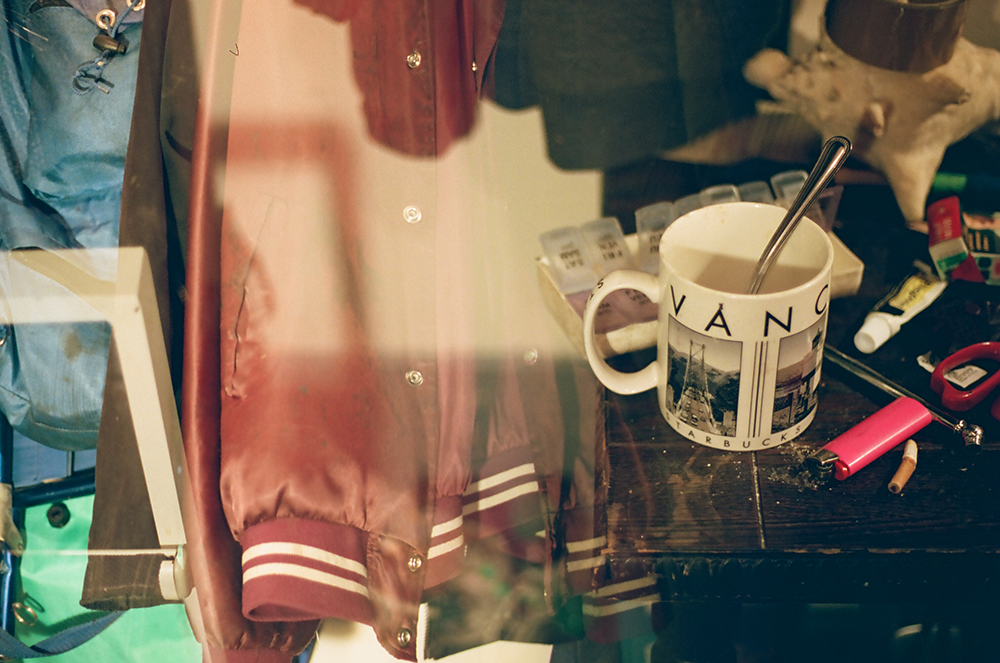
I first photographed the room where he died, in the single-room occupancy hotel downtown where he had recently moved after 20 years of living in an apartment in Marpole. I hadn’t seen him in about a year and had never been in this room before, but his best friend later told me that the new surroundings were stressful for him; it’s been well documented that the living conditions in Vancouver’s downtown SROs are often hard on their residents who are living vulnerably.
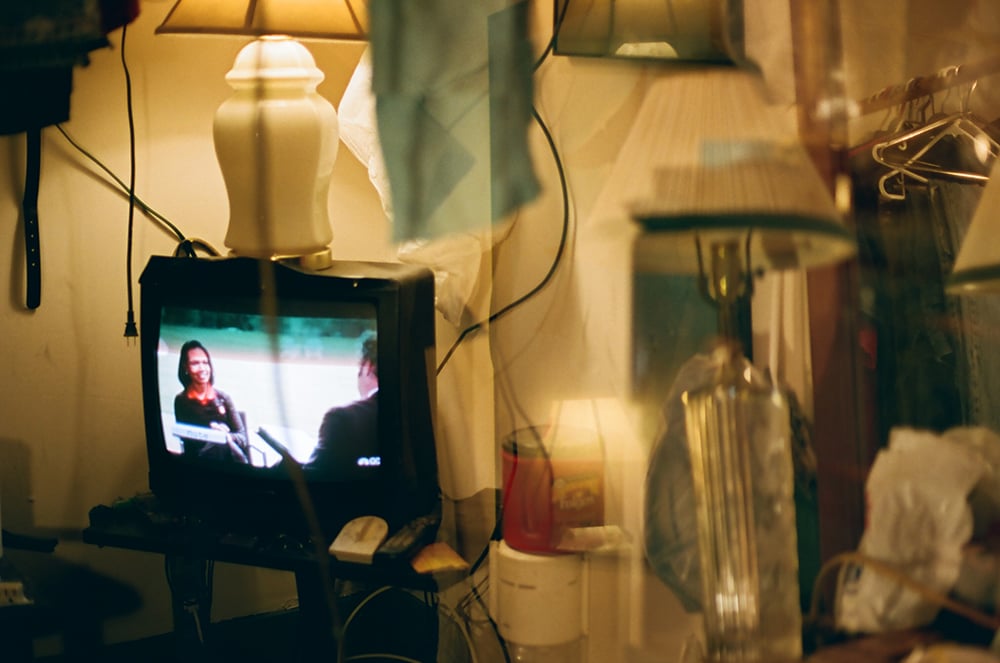
When I walked in, I noticed that both the TV and the radio were on, which was typical of my dad. Aside from an overflowing ashtray, the room was tidy. His baseball caps were hung in a row on nails on the wall; his clothes were carefully organized on hangers in a makeshift closet he’d created by fastening rope along the back of the room; food was in Tupperware containers to prevent mice from getting to it.
There was one small window in the corner of the room that was facing another building, so almost no natural light came in. There was no bed, only a sleeping bag on the floor, a detail that still brings tears to my eyes. My dad had a bad back throughout my childhood, and the pain he endured constantly was one of the reasons why he struggled so much. I later found a government letter in his room that denied his request for them to provide him with a bed.
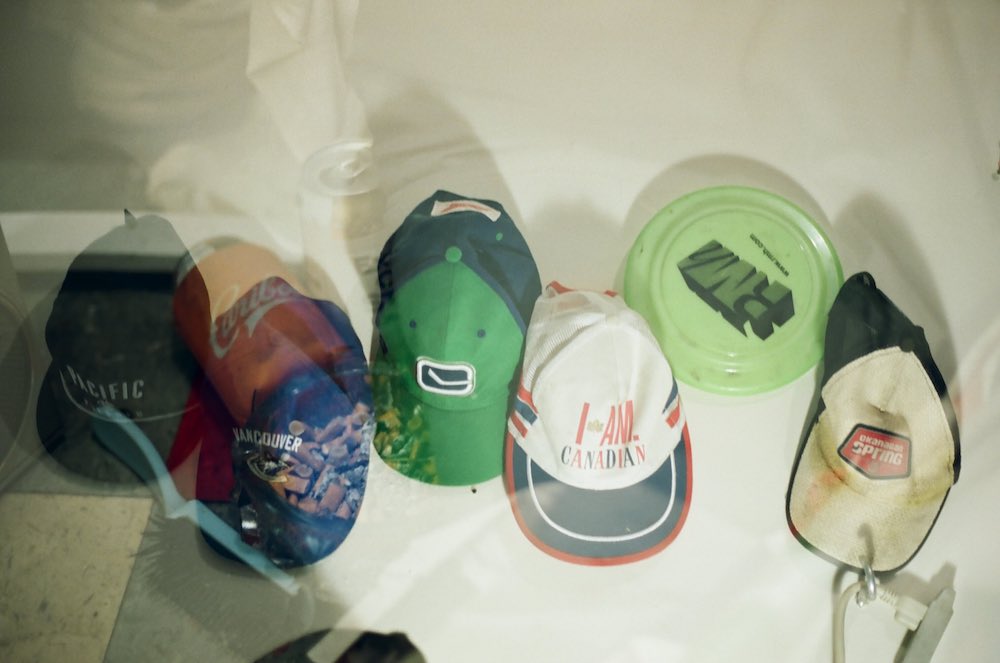
In the following days I began to visit places that reminded me of him. I would get on my bike and ride over to the housing co-op where I’d lived as a kid, to the swimming pool we went to, and to his old apartment and the parking garage there, which was the last place I saw him alive.
My dad taught me how to garden. He dug up a patch of grass behind his apartment building and we dropped pumpkin seeds in a row and pressed rhubarb into the earth. He taught me about composting. We raked leaves that became dirt over the winter. He climbed a tall rickety ladder to reach the cherries at the top of a neighbourhood tree and we baked a cherry pie from scratch. I was always welcome in his garage, which was full of tools, and we made a go-cart and a jewelry box from the wood lying around. He threw spaghetti on the ceiling to see if it was ready.
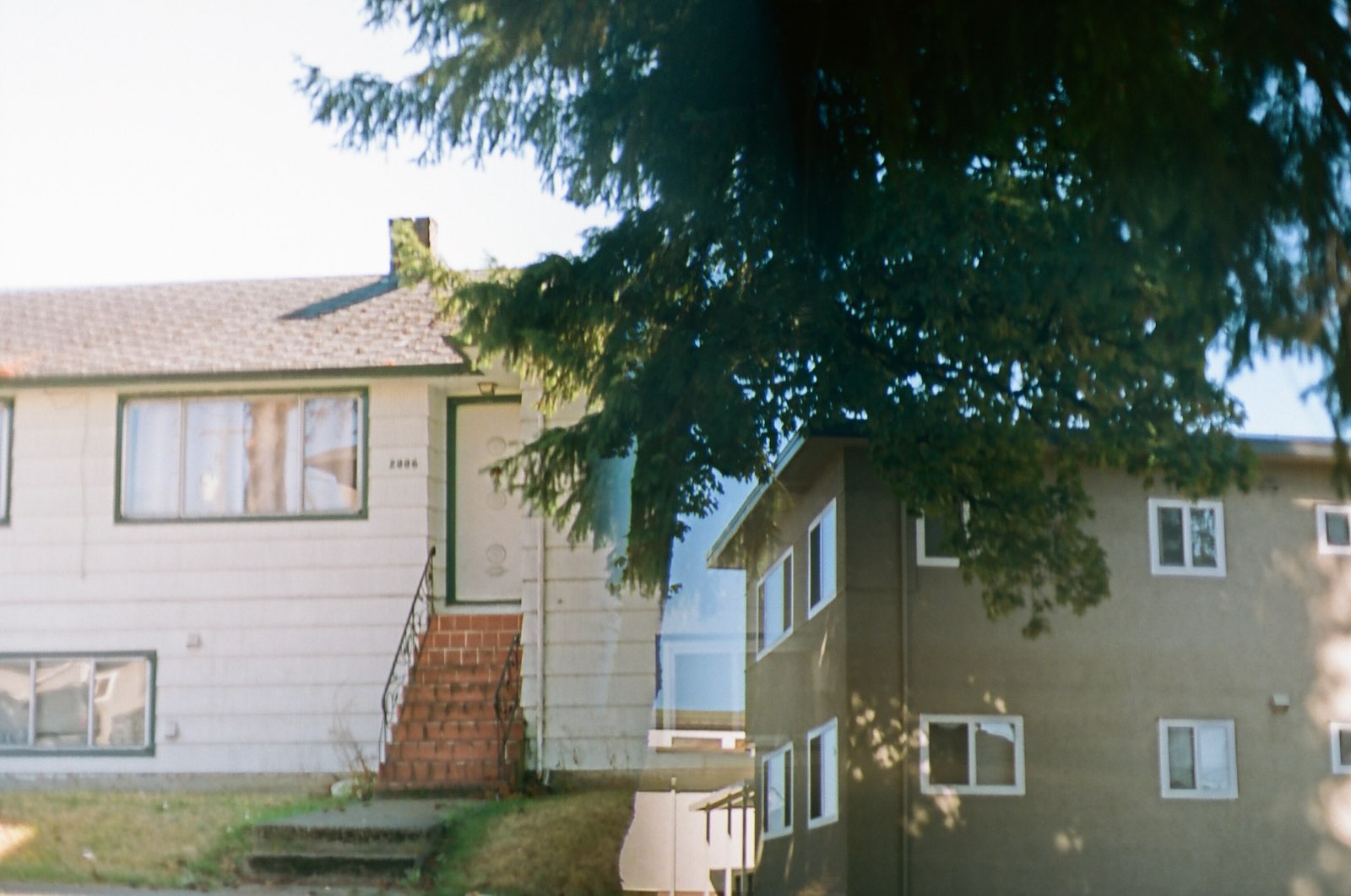
But he also never paid child support. And as a kid I learned that it wasn’t safe to get in a car with him even when he said he hadn’t been drinking, because more often than not, he was lying.
I stopped visiting him at home. Instead, we would meet for sushi dinners, but he would still drink too much even though I asked him not to. Eventually I switched our ritual to breakfasts, but he’d be drunk when he arrived at 9 a.m.
I got a job when I was 15 and bought a car with my earnings. When my dad took me to buy insurance for the car, the woman at the counter asked for my driver’s licence.
“Oh, I don’t have one yet,” I replied.
My dad piped up, defensively asking, “Does someone need a driver’s licence to purchase a car?”
The woman, caught off guard, said, “I’ve never sold car insurance to someone too young to drive, but I guess there’s no rule against it.”
Out of the corner of my eye I could see my dad was beaming. He was so proud of me.
Even though his own licence had been revoked, my dad taught me how to drive in that car, and how to change the brakes and check the oil.
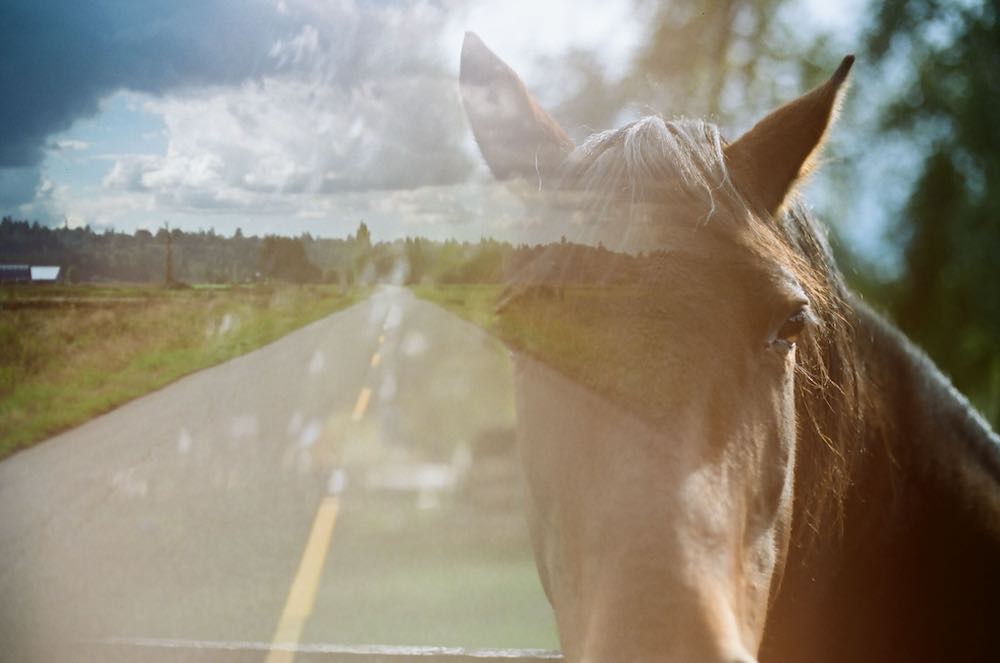
After graduating high school, I worked 60 hours a week for a year while living on the floor of my friend’s bedroom and saved enough money to go to Europe. While I was gone, my dad drove my little car without a licence and crashed it.
I was learning that for my dad, alcohol came first, and we grew apart.
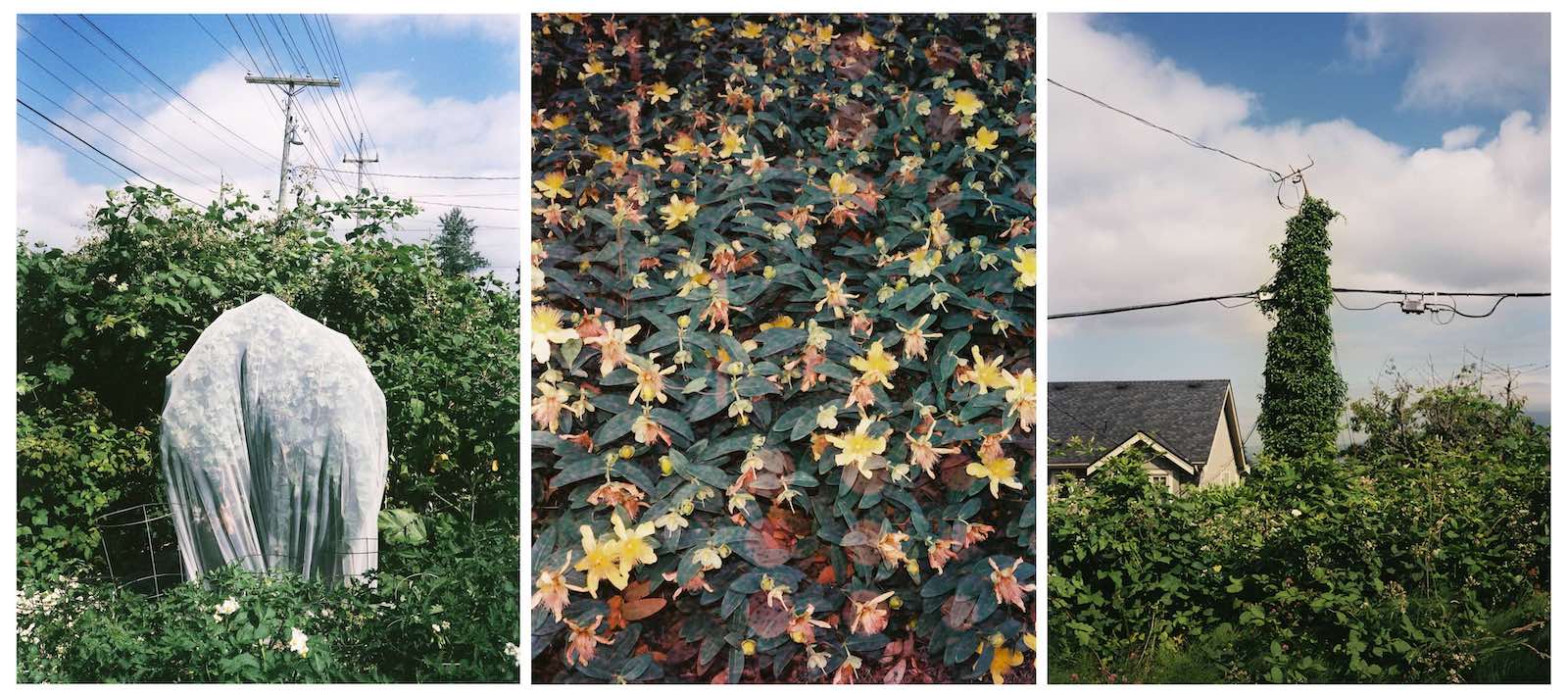
I continued to make photographs, repeatedly returning to the same places. Walking slowly through the neighbourhoods I grew up in, I found myself compelled to capture things that looked overgrown, neglected, forgotten. But I saw freedom in these things, too, a lack of inhibition that my dad embodied throughout his life. As my thoughts became more clear, so did the photographs. I slowly transitioned from busy double exposures to quiet medium-format landscapes.
I started to contemplate the fact that my dad dying from a drug overdose made me feel like the positive memories I had of him were in jeopardy and that I had to protect them somehow.
Because my dad’s death is entrenched in stigma that perpetuates the idea that someone who uses drugs is less worthy of life, and therefore less worthy of remembering, I felt like I had to stand up for him and explain that he was more than his drug use. I had to justify his goodness and continually go out on a controversial limb for a drug user, instead of simply mourning the loss of my father.
He was one of 1,495 people who died of an illicit drug overdose in B.C. in 2017. He died in October, a year and a half after the provincial health officer declared illicit drug overdose deaths a public health emergency on April 14, 2016. In the years since, that number has increased exponentially. Last year, a record-breaking 2,546 people died from unregulated drug deaths, making it the leading cause of death for people aged 10 to 59.
But according to leaders in public health, drug policy and harm reduction, “these deaths are largely preventable.” In November 2023, the BC Coroners Service convened a death review panel to examine illicit drug toxicity deaths. The 23-person panel, composed of experts in the field including doctors, coroners, substance use specialists and researchers, reported, “Any response to addressing the magnitude and severity of the emergency will experience challenges but the current system of prohibition is failing badly, and the status quo is no longer acceptable.”
The panel acknowledged that “the primary driver of the drug crisis is the inherently toxic and volatile nature of the unregulated drug supply.” Their urgent recommendation for reducing these deaths is the “pursuit of a non-medical model that provides people who use drugs with an alternative to the unregulated drug market.”
The now-defunct Drug User Liberation Front was a successful grassroots model for preventing overdoses through its distribution of safer, tested drugs.
Instead of implementing these recommendations, and scaling up the DULF model, the provincial government continues to fall short on making meaningful progress. This should be a non-partisan issue. But it’s stigma — against drug use, against being poor — that prevents these science-based solutions from moving forward.
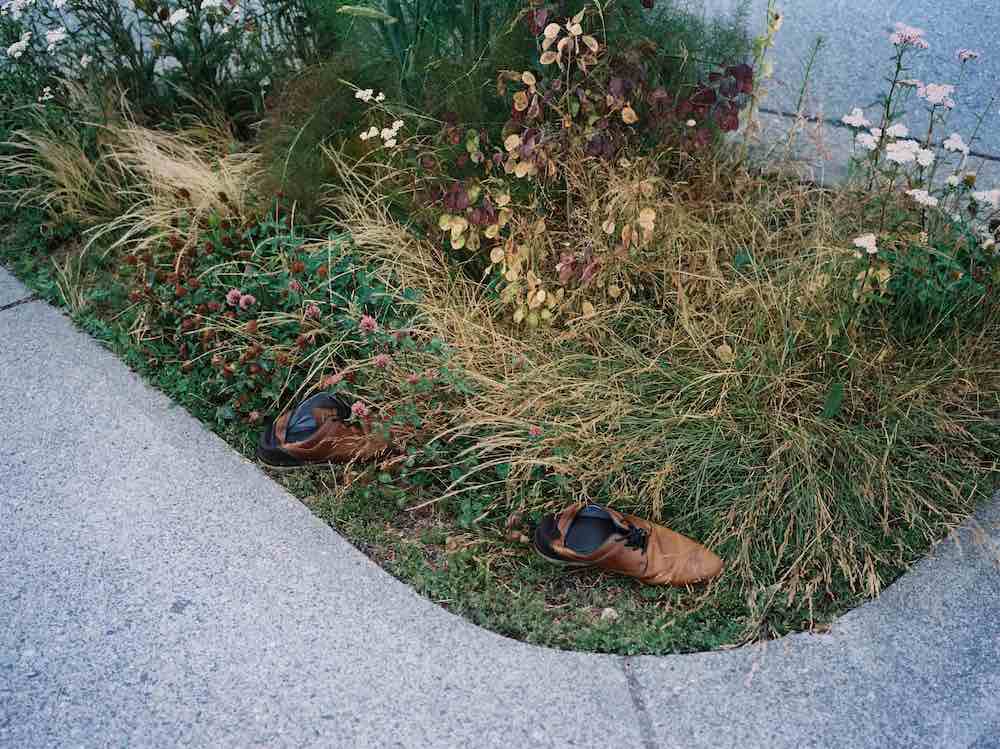
I wondered if other people who had had a family member die from an overdose might feel similarly, and was eager to connect with and witness other people’s experience of this, so I started making a series of portraits of people who had had a family member die from overdose. I asked them to choose a place to be photographed where they felt close to their loved one.
For these images I used a simple but slow square-format camera called a Hasselblad as a way to honour the strength and courage it takes to talk about this unique form of grief, known as “disenfranchised grief.” This kind of grief is defined by losses that don’t fit into more widely accepted mainstream narratives about death, may be stigmatized and therefore may be more difficult to publicly acknowledge and mourn.
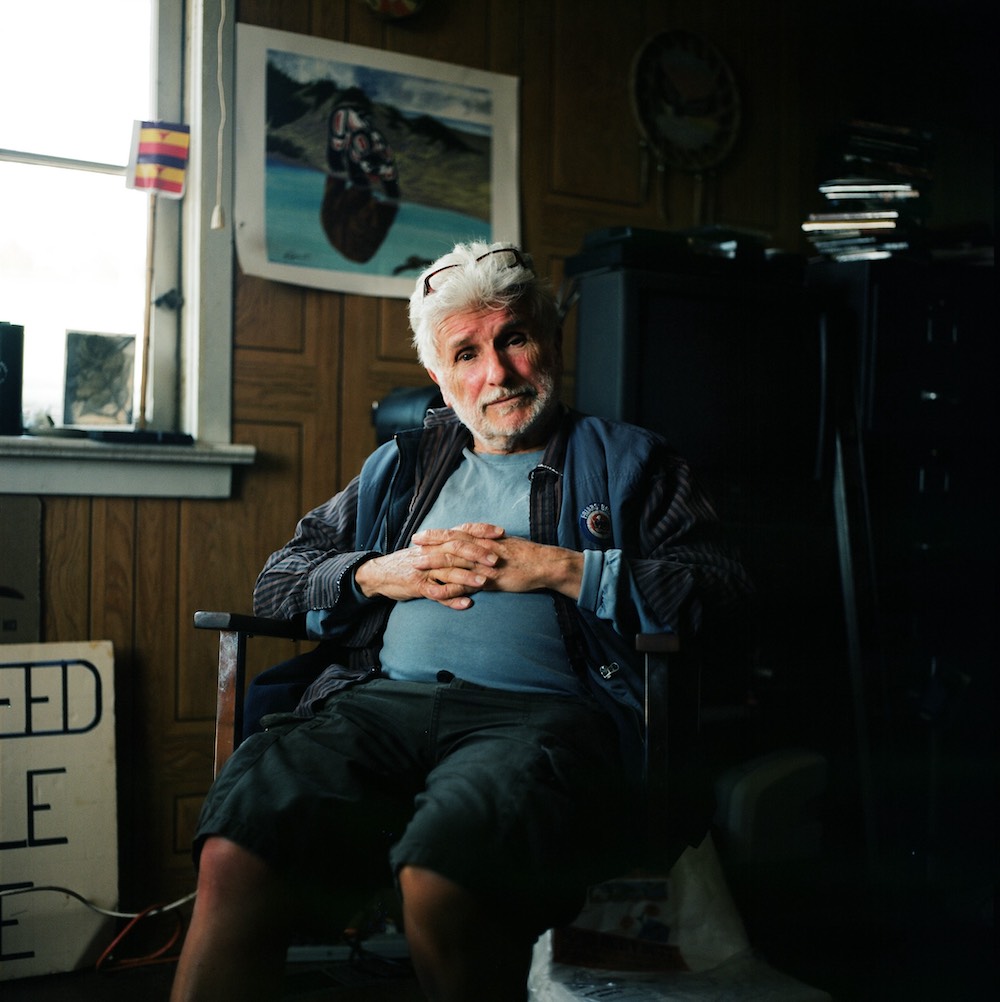
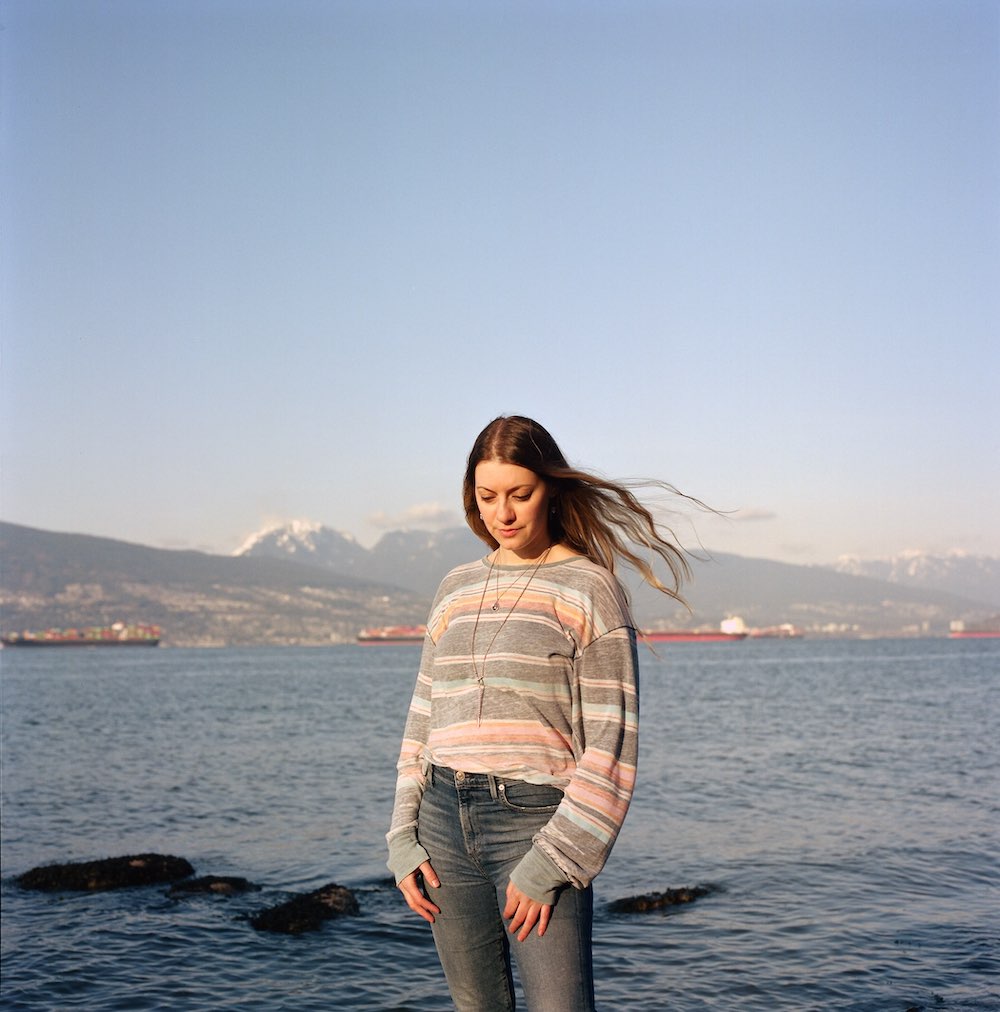
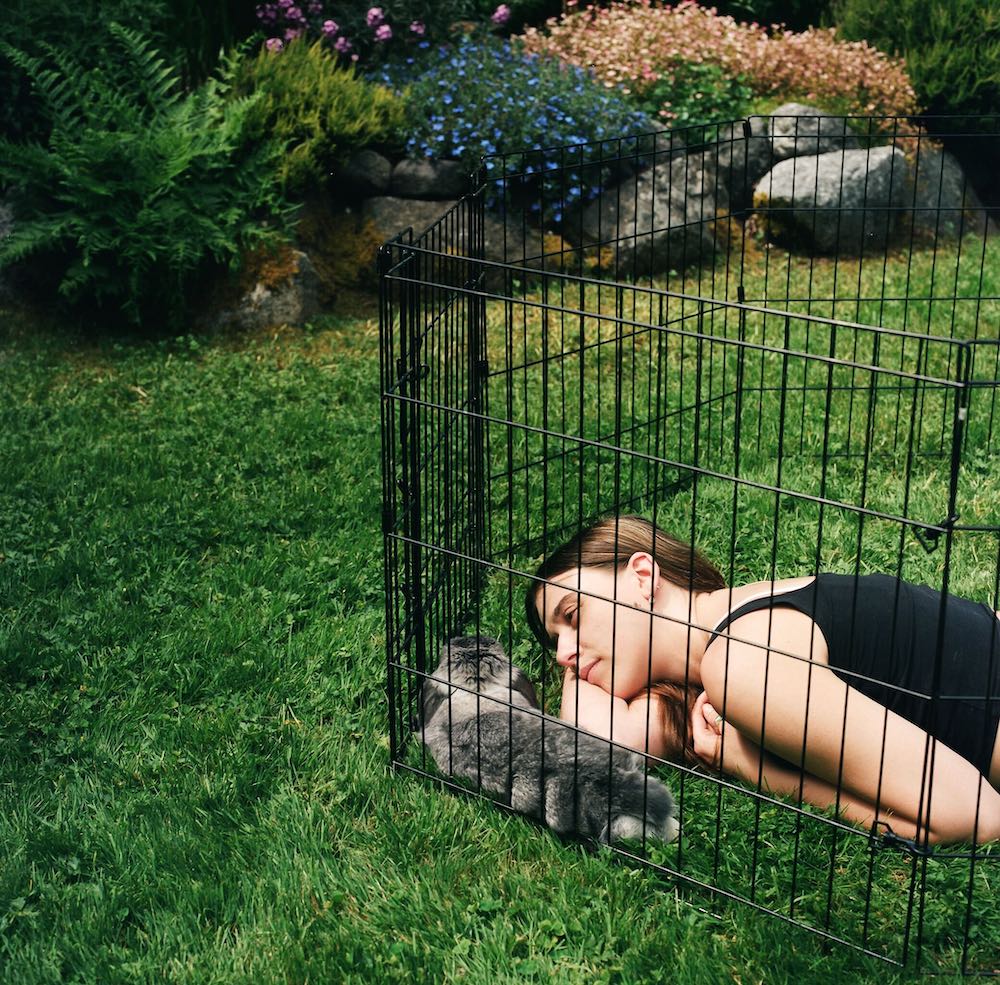
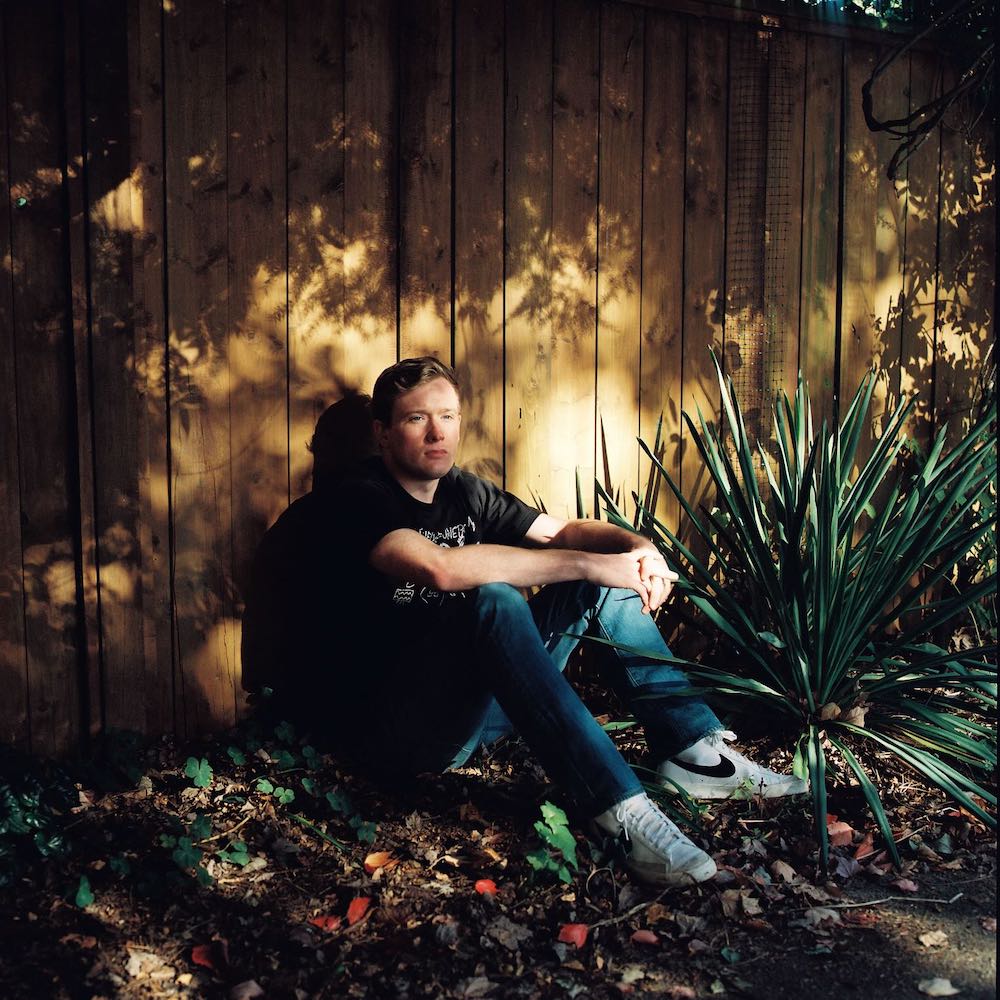
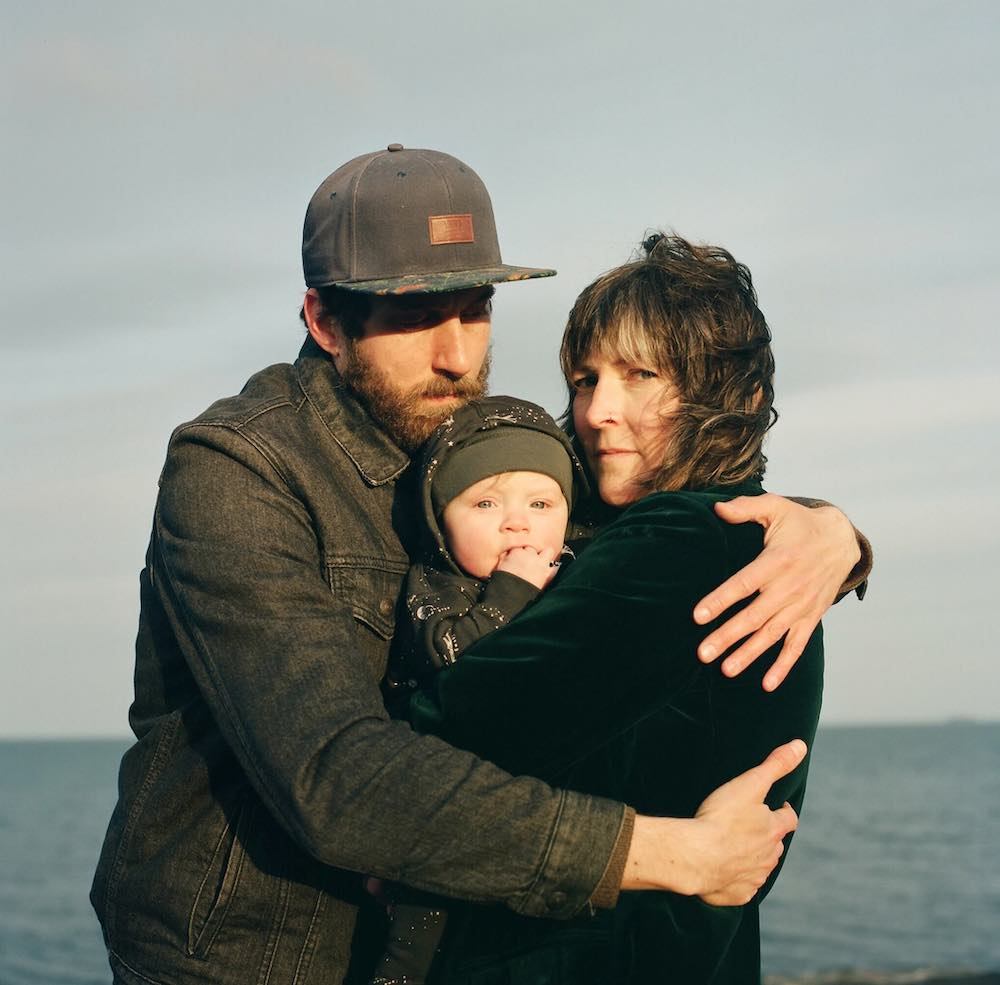
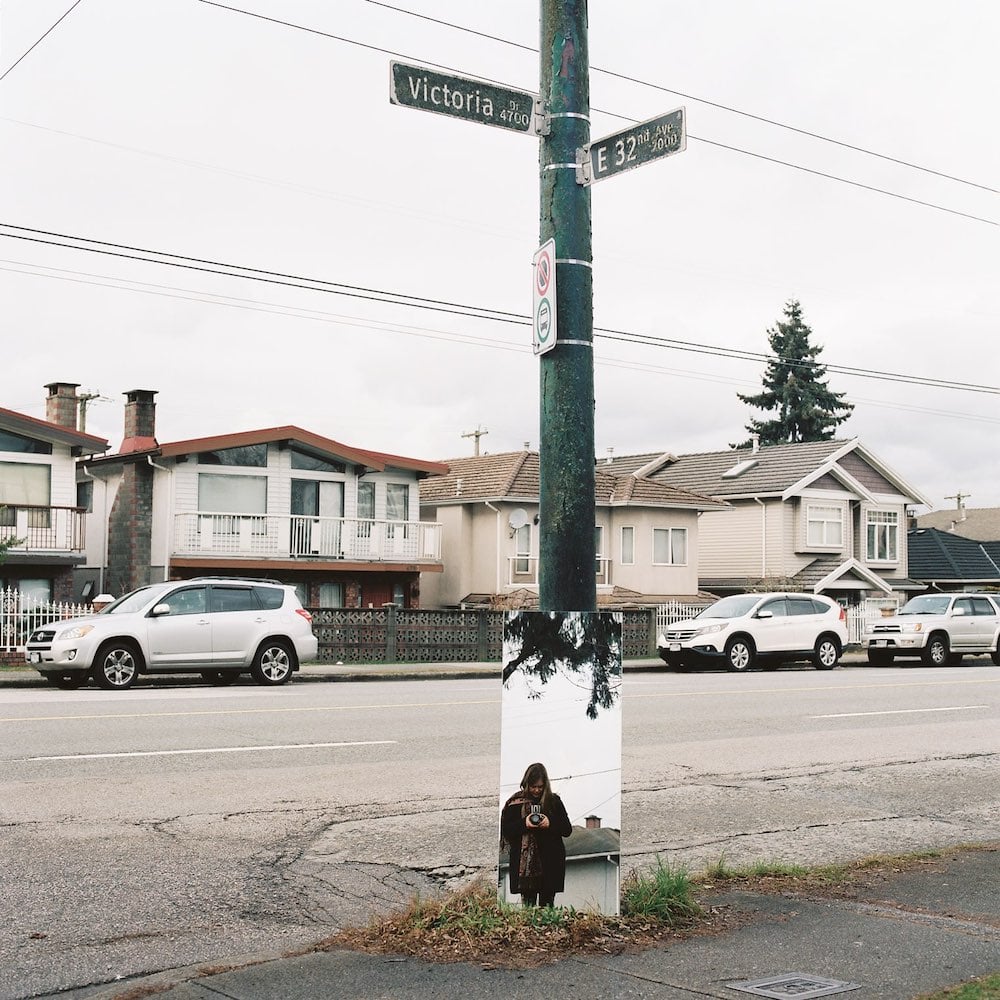
Perhaps the best thing I inherited from my dad was his tendency to want to stick it to the man, which he did with absolute conviction. The last time I photographed him alive, he was excited to show me a crazy jimmy-rigged electric bike he had made for himself by attaching some sort of found motor to a regular bicycle.
At the time, I wasn’t exactly new to photography, but it had been less than a year of me trying, in earnest, to figure out how to make good portraits, and I hadn’t gotten the hang of it yet. My biggest Achilles heel as a photographer is that I feel like a burden to the people I am photographing. Even though my dad was open to me photographing him that day, I could tell that being in front of the camera in such an intentional way was awkward for him, so I made only a few frames and they are not very good. Over the past seven years since his death, I haven’t necessarily been able to overcome feeling like a burden when I’m photographing, but I have developed techniques to make the process smoother for everyone involved.
People have told me that participating in my portrait series has been an important part of their grieving process. But the people I photograph for my ongoing work about the toxic drug supply crisis are actually giving me the meaningful gift of being able to continue to work through my own grief. The practice of photography has been a way for me to reconnect with my dad and remember him in his complexity instead of just his faults.
My dad was one of a kind. He was a cat lover, a mechanic, a carpenter, a goof, a friend, a caretaker, and also a drug user. ![]()
Read more: Health, Rights + Justice


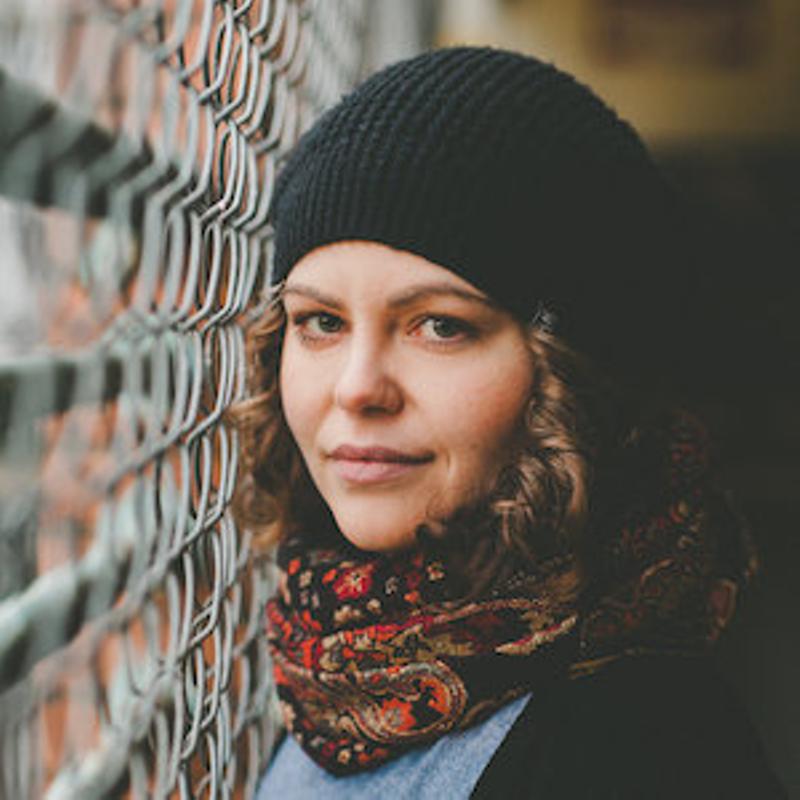

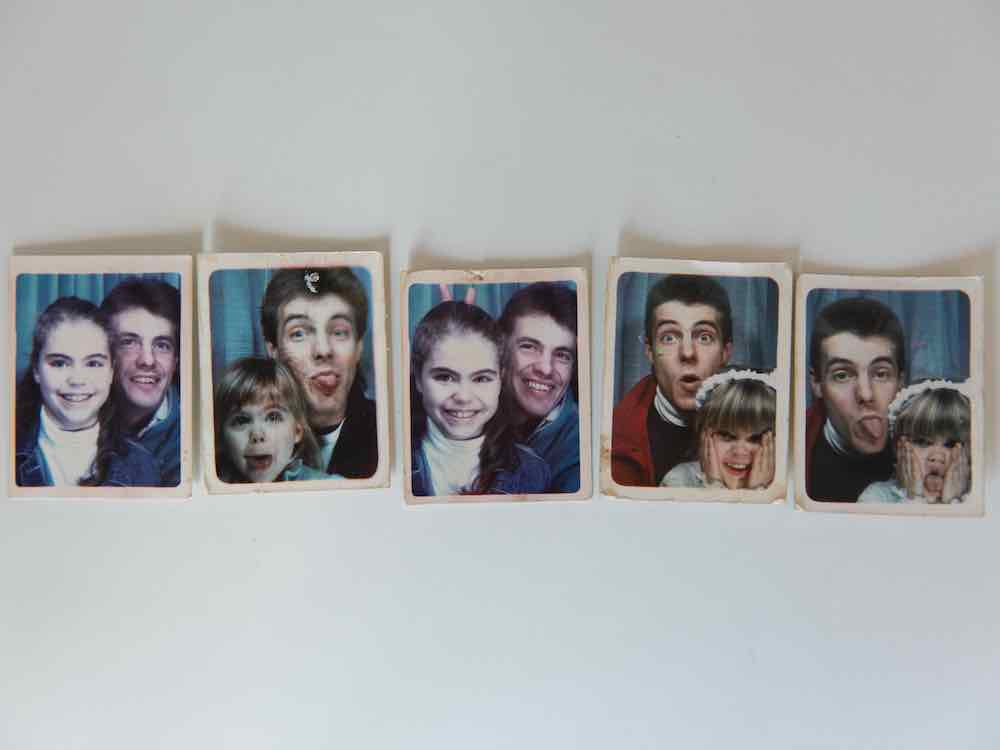












Tyee Commenting Guidelines
Comments that violate guidelines risk being deleted, and violations may result in a temporary or permanent user ban. Maintain the spirit of good conversation to stay in the discussion and be patient with moderators. Comments are reviewed regularly but not in real time.
Do:
Do not: